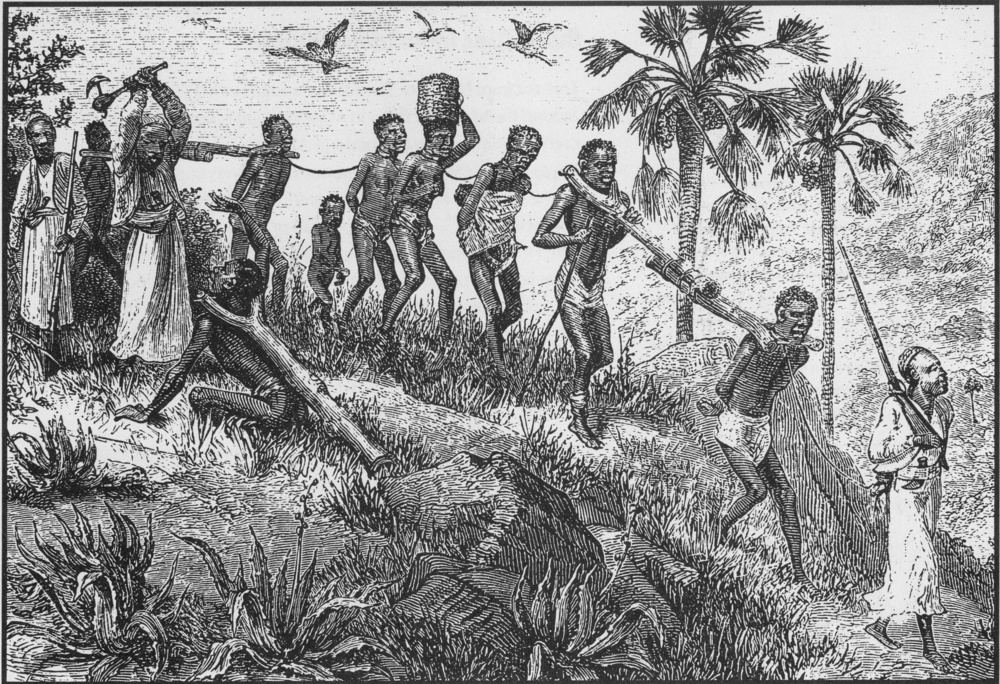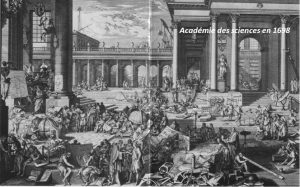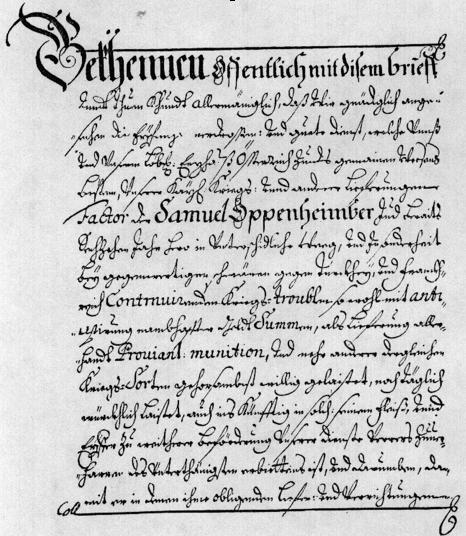
1690 AD to 1710 AD, Psalm 131: The Hofjuden.
This site was first built in French (see www.147thgeneration.net). The English translation was mainly done using « google translation ». We have tried to correct the result of this translation to avoid interpretation errors. However, it is likely that there are unsatisfactory translations, do not hesitate to communicate them to us for correction.
(for that click on this paragraph)
Summary
This generation of the 1690s and 1700s.
According to our count, this generation is the 131st generation associated with Psalm 131. It is in this Psalm 131 that we therefore find an illustration of the facts of this generation.
This generation is at the crossroads of the 17th and 18th centuries. The world was centered on the Mediterranean; in the new century, it is now the Atlantic Ocean which is at the center separating two worlds, Europe, mainly northern Europe, and the New World which ensures its development due to the slaves coming from Africa.
After the devastating effects of the Thirty Years’ War (1618/1648), the German Princes encouraged the Jews to repopulate the cities. In these emerging or rather reborn communities, certain Jews play a particular role. It was the Hofjuden or « Court Jews » who were not particularly foreign to the Turkish defeat against Vienna in 1683.
These Hofjuden at no time seek to take advantage of their privileged status to distance themselves from their religion or community.
The end of this generation initiates the Age of Enlightenment. While many Jews will be seduced by this movement, others remain drawn to the messianic movement of the false Messiah Sabbatai Zevi.
Talk
The Atlantic Ocean
The eighteenth century is the century of birth of the Enlightenment movement, that of ideas and sciences.
Until now, the Mediterranean was in the middle of the world separating two competing worlds, that of Christianity and that of Islam. But this sea becomes a lake, it is now the Atlantic Ocean that separates two worlds, Europe and the New World with a power that will emerge: that of the United States of America. Neither Africa which is emptied of its living forces nor the Asia which folds on itself will prevent this progressive rise of power of Europe and America.
The colonization [1] of America still requires more labor, because the American Indians, when they have not been decimated by microbial shock, are unable to support forced labor in mines and plantations . As early as the 16th century, Europeans began to buy slaves in Africa that were more robust and more enduring. Before 1650, this traffic carries a maximum of 10,000 captives per year, but the growth of large plantations increases demand. It is estimated that between 20 and 100 million people have left West Africa for the duration of the Treaty. Among the deported slaves must be added Africans killed during raids: up to 4 people for a slave who has reached the coast. This trafficking, organized by the Europeans, added to that organized by the Arabs since the ninth century, contributes largely to the decline of Africa. Depopulated and disorganized, it will be an easy prey to colonization in the nineteenth century.

Peter the Great is Tsar in 1682 (at the age of ten years) but has real power from 1696 to the death of his half-brother. During his reign, Russia emerged from the Middle Ages and achieved the status of European power confirmed by the victory over the Swedes in 1709 in Poltava. He founded the city of Saint Petersburg in 1703 which became the new capital of Russia in 1712.

While Amsterdam serves as the basis for a new rise of Judaism in Europe, New Amsterdam, which has recently become New York – since the city came under British rule – will serve as the basis for the creation of North American Judaism.
The last great Muslim power that could still compete with the West has just lost a decisive battle.
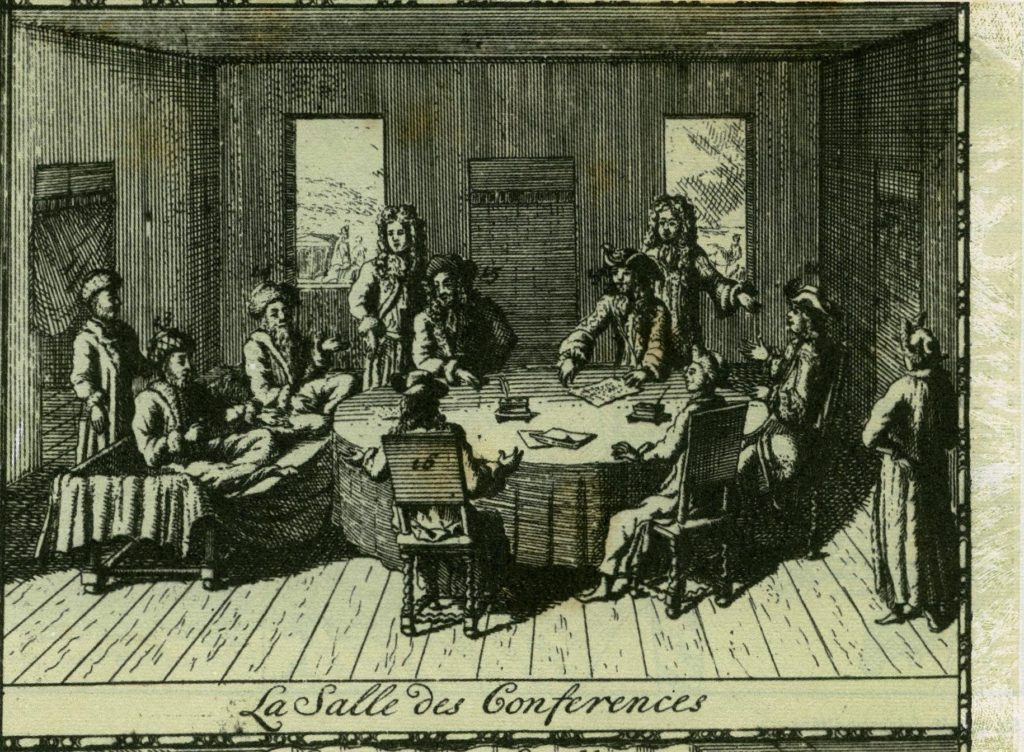
The Ottoman Empire [2] tried to attack Vienna in 1683, its defeat is stinging and marks the beginning of the decline of Turkish power in Europe. The Europeans unite in a Holy League and the Turk is still defeated, in 1696 by the Russians, in 1697 by Austria. For the first time, the Ottoman Empire is forced to sign an unfavorable treaty. In Karlowitz, in 1699, he lost Podolia, the Ukraine, the Greek Morea and Hungary. The Sublime Gate is still powerful, but now its armies no longer attack, they defend themselves.
The Hofjuden (« Court Jews »)
After the devastating effects of the Thirty Years’ War, the German Princes incited the Jews to repopulate the cities.
This return of the Jews, which can be compared economically to what happened in the United Provinces, is not, however, accompanied by the same openness. Anti-Semitism is still topical, and exceptional measures are still being applied to Jews in Austria and some German cities, a fertile breeding ground that is likely to be a part of twentieth-century events.
In these nascent or rather rebirthing communities, some Jews play a special role, it is the Hofjuden or « Jews of Court » who are not particularly foreign to the Turkish defeat against Vienna in 1683:
- The period 1650-1750 [3] saw the development of court Jews, who had already proved themselves as purveyors of armies during the Thirty Years War. The absolutist state, based on mercantilist ideology, tries to establish a monetarist economy that used credit to stimulate commercial and industrial development. Only the Jews, who were also discarded from the land and the trades, had the mobility, the interpersonal skills, and the initiative to raise the funds and establish the business networks necessary for such an enterprise.
- They thus imposed themselves, under the title of « Hofjude » or « Hoffaktor », first in the supply of the baroque princely courts, which rivaled each other in the imitation of the court of Louis XIV, in jewels, in groceries fine import and in ceremonial fabrics. But their responsibility could extend to almost all the management of the state, in which they seconded the prince: they were thus purveyor of ammunition, financial agents or collectors of taxes, charged with the purchase of the precious metals for the striking of money, invested with diplomatic missions, pioneers of the nascent capitalist industry.
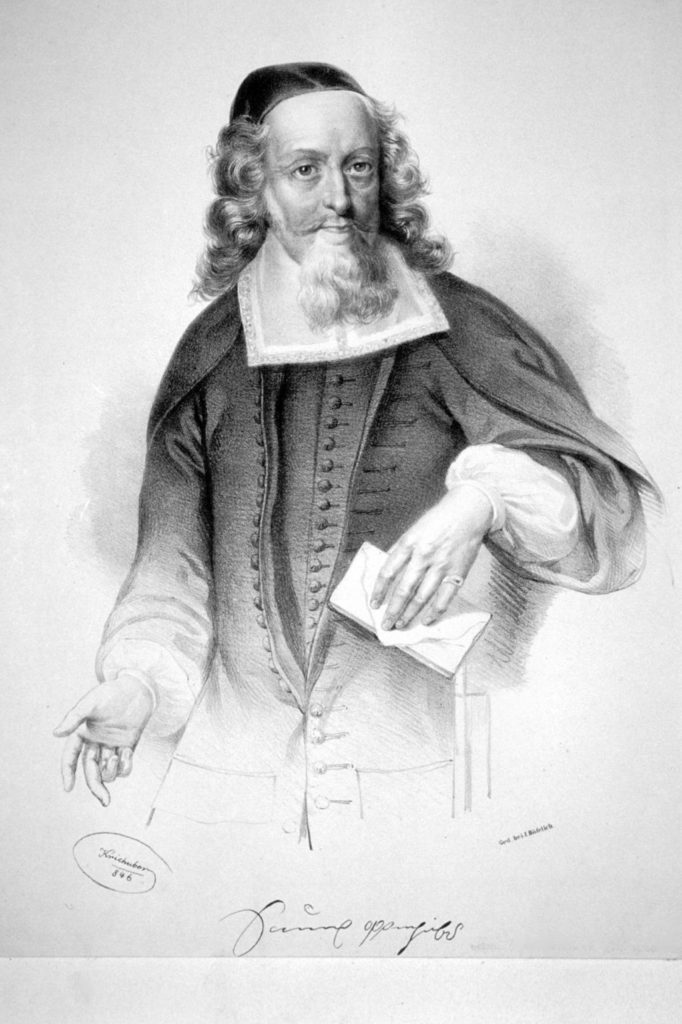
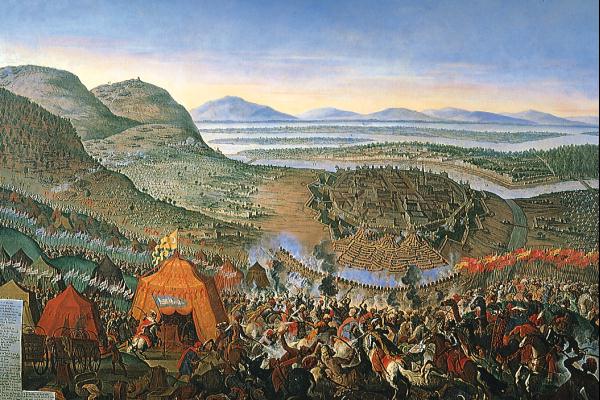
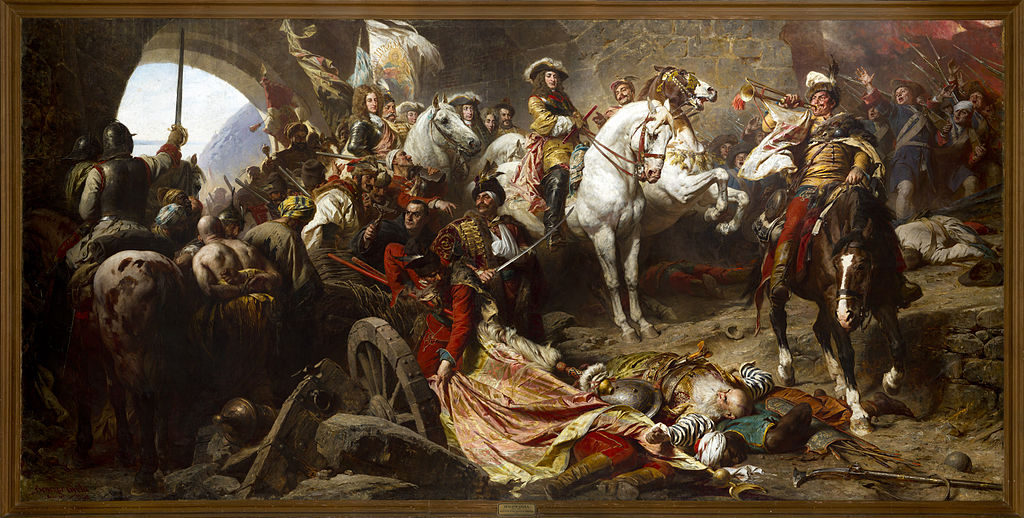
- The most famous of court Jews was Samuel Oppenheimer (1630, 1703) in Vienna. Already thrown into prison after the Treasury was unable to settle a debt of 200 000 florins contracted for the financing of the war of Austria against France (1673-1679), he proposed however to take charge of supply alone logistics of Austrian armies in the war against Turkey. The Turks besieging Vienna, he offered his services at the lowest price, demanding from the State the settlement of his debt before delivering five thousand tons of flour, and the forage for the horses, to the garrisons in distress. With a network of suppliers throughout Europe, he sent ammunition and artillery rafts down the Danube, transported the Hungarian army to Krakow, and cavalry regiments from Brunswick to Bohemia, transported to Buda besieged powder and provisions, clothing and ammunition, sheets and liquor.
- Supported by Eugene de Savoie and the Margrave Louis of Baden, he was again called to the rescue during the invasion of the Palatinate by Louis XIV in 1688. While Cardinal Kollonitsch, anti-Semite (instigator of the expulsion of the Jews of Vienna ) and antiprotestant, appointed head of the finances of the empire, tried by sinister intrigues to oust him, Oppenheimer was still helping the country in the War of Spanish Succession.
- The Austrian state owed him millions, and he had largely lost his credit with the suppliers. His home was ransacked by the mob in 1700, and he was repeatedly imprisoned. Yet no setback of fortunes shook his loyalty to the house of Habsburg, who at his death in 1703, refused to honor his debt to his son Emmanuel.
The loyalty of the Hofjuden
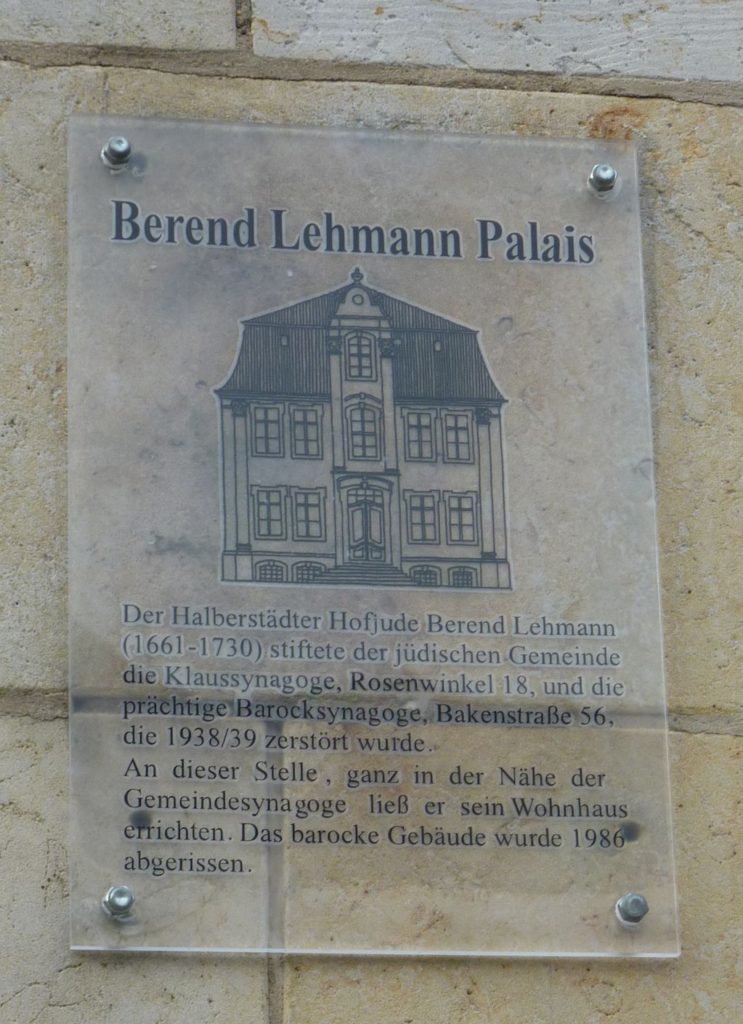


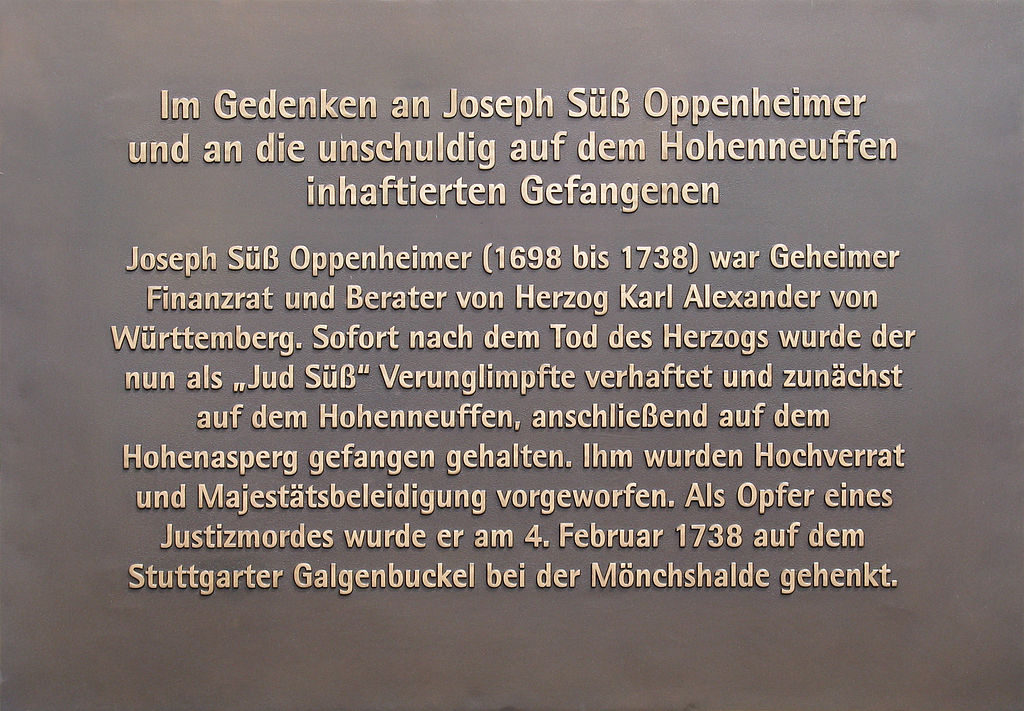
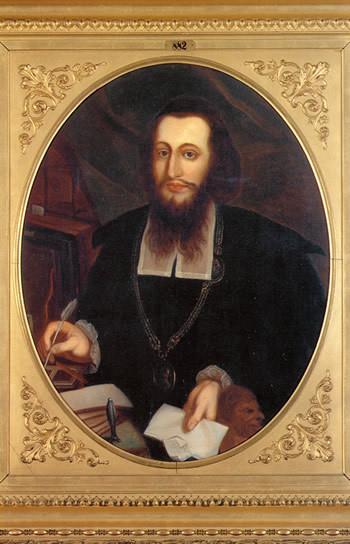
Other court Jews [4] will have similar backgrounds, such as the « Jewish Süss » (Joseph Oppenheimer, 1698-1738) who ends his life in prison and hanged refusing baptism. Leffmann Behrens helped Frederick Augustus, elector of Saxony, to obtain the throne of Poland after helping his father Ernest Auguste obtain the title of Elector in 1692. These court Jews, despite their success, unfortunately often fleeting, do not break their attaches with their religion and their fellow believers:
- It should be noted [5] that Court Jews never seek to take advantage of their privileged status to distance themselves from their religion or community. Allowed to have their own rabbi even when their place of residence is forbidden to the Jews, they do not think at all to convert even profiting from their exceptional status to ask for more generous authorizations for their co-religionists.
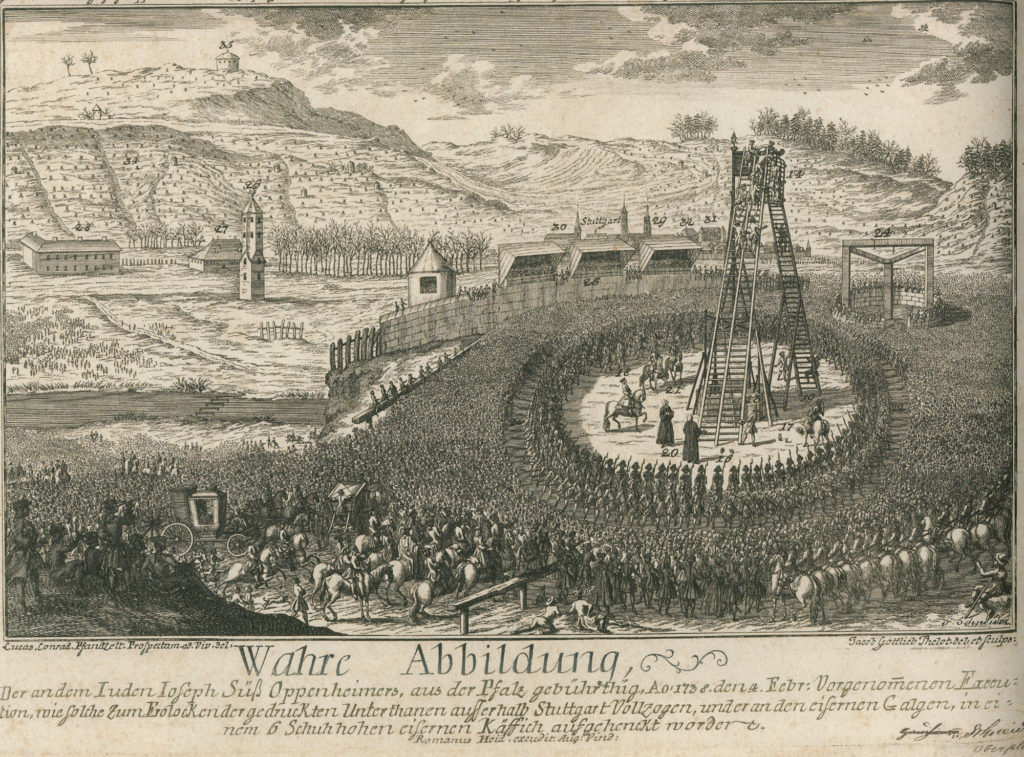
- The Jewish communities of Leipzig, Hanover, Kassel, Breslau, Schwerin and Stuttgart are thus beneficiaries. Samson Wertheimer and Behrend Lehman, court Jews in Austria and Saxony, are renowned Talmudists.
- Josef Süss Oppenheimer may have liked luxury and women, but before his execution he asked that much of his fortune be used for the construction of synagogues. In his prison, he told the pastor, « I am a Jew and I will remain a Jew. I will not make myself a Christian even to become emperor. «
The high social position obtained by the court Jews and their attachment to their community and their Judaism illustrate the content of the Psalm of this generation:

- A song of ascent by David. O Lord, my heart was not haughty, nor were my eyes raised on high, and I did not pursue matters greater and more wondrous than I.
- I swear that I calmed and quieted my soul like a suckling on its mother; like a suckling was my soul with me.
Enlightenment and False Messiah
The end of the reign of Louis XIV that corresponds to this generation initiates the Age of Enlightenment aimed at advancing knowledge based on the development of science and philosophy by fighting religious obscurantism, mainly Christian. This movement will have its equivalent on the Judaism side by the Haskalah advocating the integration of Jewish communities, mainly Ashkenazi, into European societies. This movement, which will actually be initiated in the middle of the 18th century, will oppose the power of traditional Jewish religious authorities. The fight of the Haskalah will be facilitated by the discredit of those authorities who have largely endorsed the messianic movement of Sabbatai Zevi which still has consequences for the present generation. The disappointment engendered by Sabbataism continues to provoke conversions to Islam or to Christianity even to a kind of atheism. Cultivated elites turn to new philosophical currents that no longer bring credit to the rabbinical hierarchy.
One of the last desperate movements related to Sabbataism is a vast movement of aliyah.
This aliyah is growing in the Jewish community of Jerusalem but the Messiah will not come. Traces of Sabbatians have mostly been destroyed in the rabbinical archives in order to erase the traces of complicity induced by the religious elite of Judaism.
The effects of the Sabbatian movement have been devastating for Jewish hope.
So if the Messianic hope is part of the expectations of Judaism, it must not be the absolute goal that must remain the direct trust in the Lord as concludes the psalm of this generation:

- Israel, hope to the Lord from now to eternity.

[1] (directed by) Jean Delumeau: « History of the world, from 1492 to 1789 ». Chapter: « The slave trade » (French: « Histoire du monde, de 1492 à 1789 ». Chapitre : « La traite des noirs ». (p. 342 à 345) ).
[2] (directed by) Jean Delumeau: « History of the world, from 1492 to 1789 ». Chapter: « The Decadence of the Ottoman Empire ». (French: « Histoire du monde, de 1492 à 1789 ». Chapitre : « La décadence de l’Empire Ottoman ». (p. 333) ).
[3] (directed by) Jean Baumgarten: « A thousand years of Ashkenazi cultures ». Delphine Bechtel’s chapter: « Jews in Germany and Austria in the age of absolutism ». (French: « Mille ans de cultures ashkénazes ». Chapitre de Delphine Bechtel : « Les Juifs en Allemagne et en Autriche à l’ère de l’absolutisme ». (p. 104-105) ).
[4] (directed by) Jean Baumgarten: « A thousand years of Ashkenazi cultures ». Delphine Bechtel’s chapter: « Jews in Germany and Austria in the age of absolutism ». (French: « Mille ans de cultures ashkénazes ». Chapitre de Delphine Bechtel : « Les Juifs en Allemagne et en Autriche à l’ère de l’absolutisme ». (p. 105) ).
[5] Roland Charpiot: « History of the Jews of Germany ». Chapter: « Jewish Society in Crisis in 17th and 18th Century Germany ». (this passage quotes Samuel Trigano). (French: « Histoire des Juifs d’Allemagne ». Chapitre : « La société juive en crise dans l’Allemagne des XVIIe et XVIIIe siècles ». (ce passage cite Samuel Trigano). (p. 46/47) )

